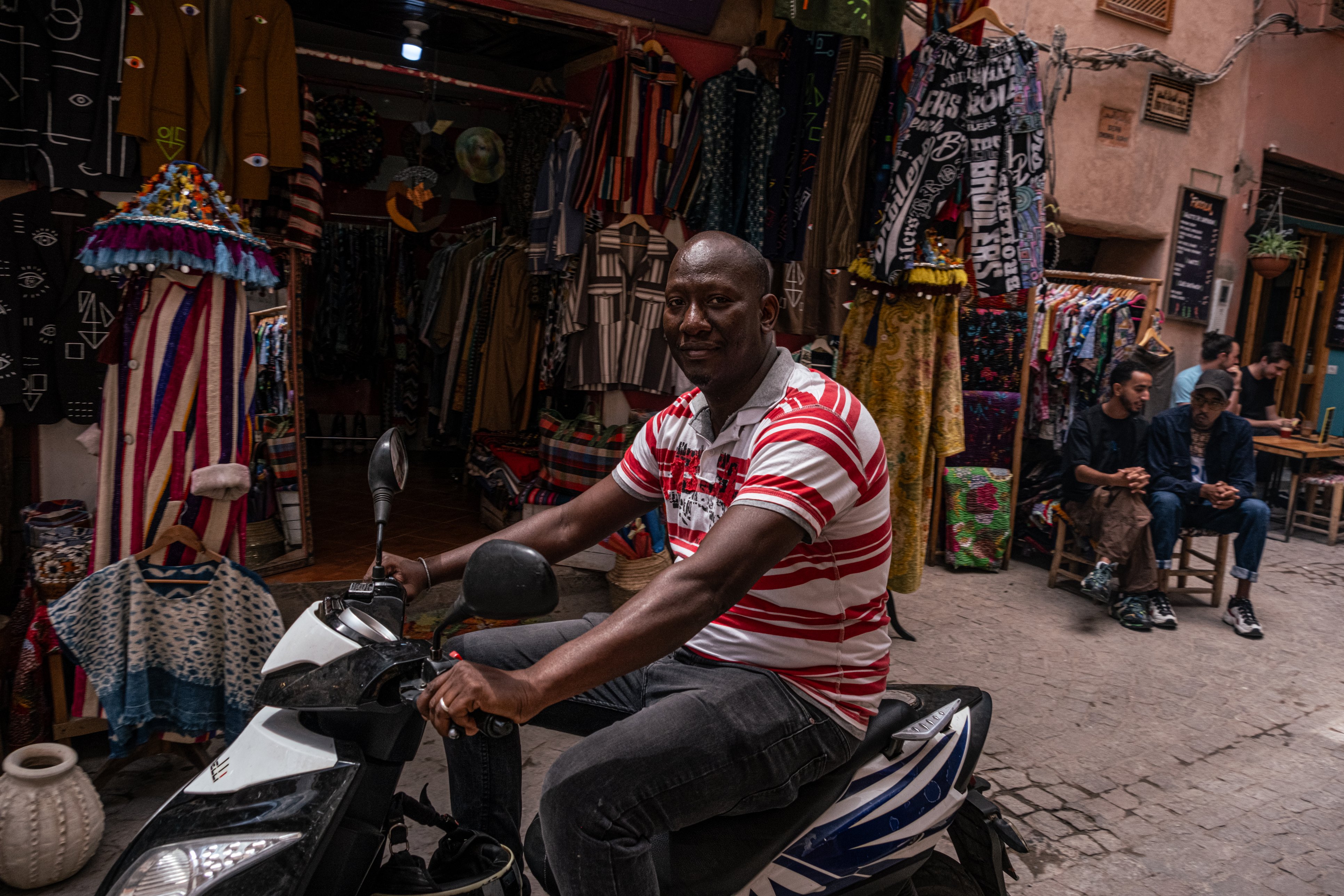The following is an English summary of this story, "La strada per Casablanca." An Italian summary of the audio story, aired in Italian for Radiotelevisione svizzera (RSI), follows.
Morocco is becoming a medium- to long-term stop for intra-African migration routes. Despite the difficulties in making estimates, between regulars and irregulars, North Africa's Maghreb kingdom is said to host over 70,000 citizens from sub-Saharan Africa. The Senegalese diaspora is among the most numerous and well-integrated.

As a nonprofit journalism organization, we depend on your support to fund more than 170 reporting projects every year on critical global and local issues. Donate any amount today to become a Pulitzer Center Champion and receive exclusive benefits!
Through the stories of some Senegalese residents in Morocco, this episode of Laser (RSI) shows the life of sub-Saharan communities in the country. In 2018, Morocco was named "Champion of Migration" by the African Union, recognizing it as a virtuous model, in stark contrast to what happens in other North African countries.
Although this model seems ambitious, it still has ambiguous sides. On the one hand, Morocco wants to establish itself as a host country. On the other, it continues to perpetuate violent policies on its northern borders.
Indeed, in cooperation with the European Union, Rabat, Morocco's capital, plays the role of "Brussels gendarme," blocking migratory flows to Spain. It is a system that brings not only geopolitical benefits to Morocco, fueling the kingdom's soft power, but also economic benefits such as cheap labor for key sectors.
Il Marocco sta diventando una tappa di medio-lungo termine delle rotte migratorie intra-africane. E’ difficile fare stime ma tra regolari e irregolari, il Regno maghrebino ospiterebbe oltre 70.000 cittadini provenienti dall’Africa sub-sahariana. La diaspora senegalese è tra le più numerose e ben inserite.
Attraverso le testimonianze di alcuni residenti senegalesi in Marocco, questo episodio di Laser racconta la vita delle comunità sub sahariane nel Paese, che nel 2018 è stato nominato “Champion of Migration” dall’Unione africana, un riconoscimento che sembra posizionarlo come modello virtuoso di integrazione dei migranti, in netto contrasto con quanto accade in altri stati del Nord Africa.
Un modello certamente ambizioso, ma ancora ambiguo. Da un lato, un Marocco che si vuole affermare come paese di accoglienza, offrendo ai migranti opportunità di impiego e accesso ai servizi pubblici essenziali. Dall’altro, il “gendarme” che blocca le frontiere europee e che fatica a regolarizzare i migranti. Un modello che porta benefici geopolitici, alimentando il soft power di Rabat, ma anche economici sotto forma di fondi dall’Unione europea e di manodopera a basso costo per settori chiave come l’agricoltura.










